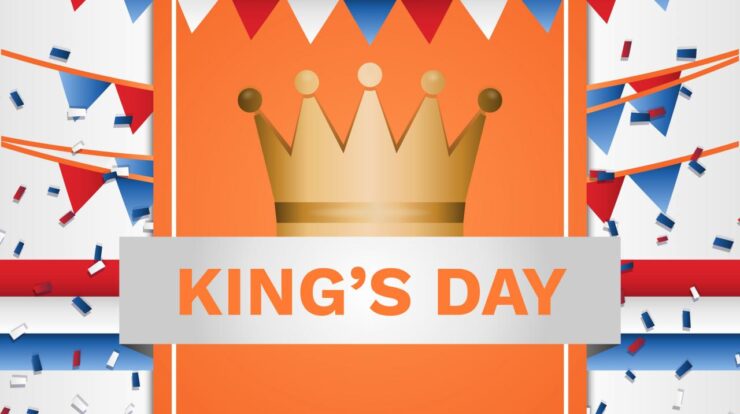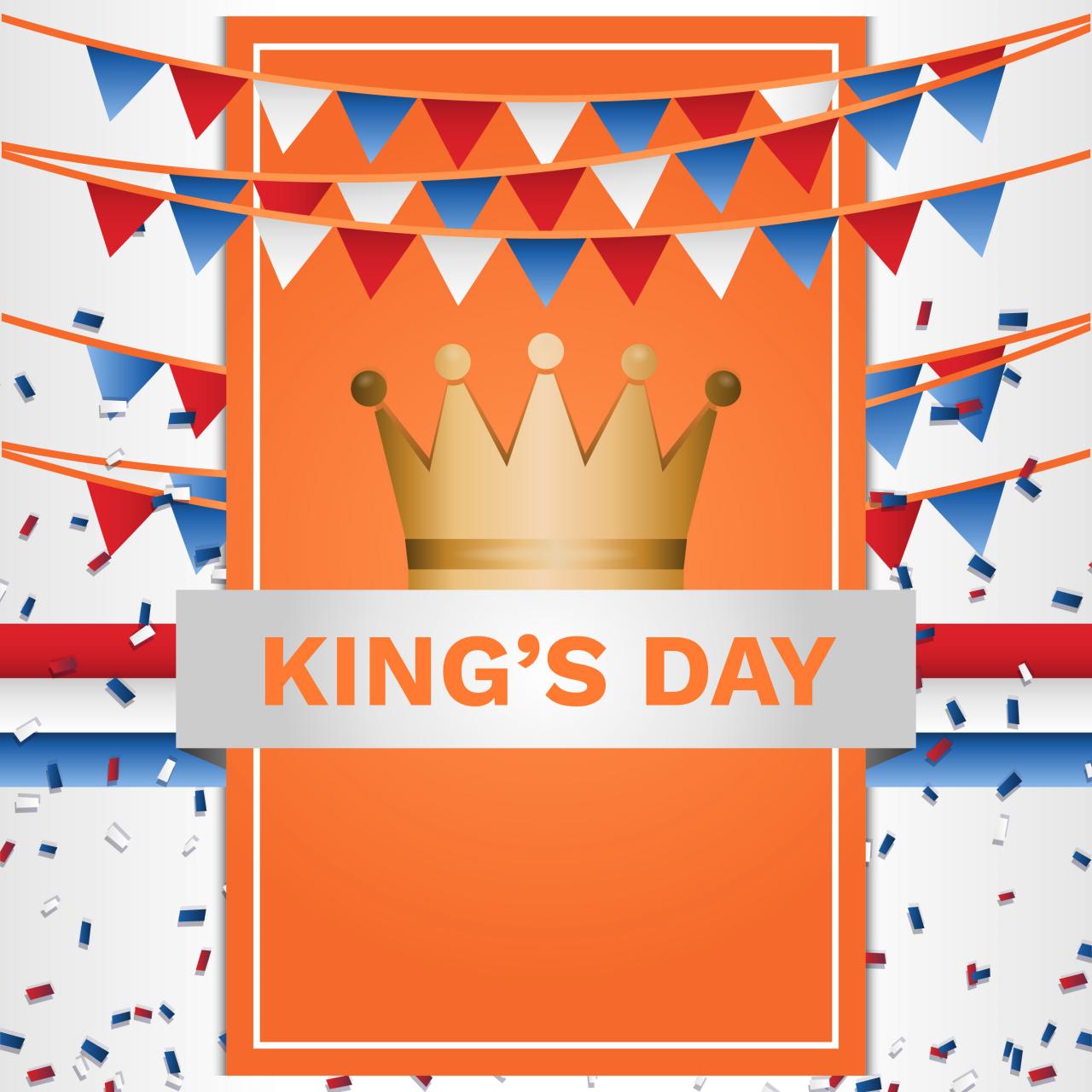
Koningsdag, a vibrant national holiday in the Netherlands, is a testament to the country’s rich history, cultural heritage, and deep-rooted sense of national identity. On this day, the streets come alive with a kaleidoscope of orange, the color of the Dutch royal family, as people gather to celebrate the King’s birthday and immerse themselves in a tapestry of traditional festivities and contemporary entertainment.
The origins of Koningsdag date back to 1885, when it was known as Princess’s Day, commemorating the birthday of Princess Wilhelmina. In 1949, after Wilhelmina’s abdication, the holiday was renamed Queen’s Day in honor of her successor, Queen Juliana. In 2013, with the accession of King Willem-Alexander to the throne, the holiday was renamed Koningsdag, or King’s Day.
History and Significance of Koningsdag
Koningsdag (King’s Day) is a national holiday in the Netherlands celebrated on April 27th to mark the birthday of the reigning monarch. The tradition dates back to 1885 when Queen Wilhelmina’s birthday was celebrated as a national holiday. The day symbolizes the unity of the Dutch people and their connection to the royal family.
Role of the Dutch Royal Family
- The royal family plays a central role in Koningsdag celebrations, with the King or Queen leading the festivities.
- The King or Queen typically visits several cities throughout the Netherlands, participating in parades, markets, and other events.
- The royal family’s presence adds a sense of grandeur and national pride to the celebrations.
Traditional Festivities and Activities

Koningsdag is characterized by a lively and festive atmosphere with various traditional activities taking place throughout the country.
Vrijmarkt (Flea Market), Koningsdag
- One of the most popular activities is the Vrijmarkt (free market), where people set up stalls to sell second-hand goods.
- The Vrijmarkt is a great opportunity to find unique items, support local businesses, and experience the vibrant street culture of the Netherlands.
Oranjebitter (Orange Liqueur)
- Oranjebitter is a traditional Dutch orange liqueur that is widely consumed during Koningsdag.
- The orange color of the liqueur represents the Dutch royal family and is a symbol of national pride.
- Oranjebitter is often served as a shot or mixed into cocktails, adding a festive touch to the celebrations.
Koningslied (Royal Anthem)
- The Koningslied (Royal Anthem) is a song that is traditionally sung on Koningsdag to honor the reigning monarch.
- The anthem is a symbol of national unity and patriotism, and it is often performed by choirs, bands, and individuals throughout the country.
- Singing the Koningslied is a way to express appreciation for the royal family and celebrate Dutch culture.
Music and Entertainment: Koningsdag
Music plays a vital role in creating the lively atmosphere of Koningsdag celebrations.
Variety of Musical Genres
- Koningsdag features a wide range of musical genres, from traditional Dutch folk music to pop, rock, and electronic dance music.
- Live bands, DJs, and street performers fill the streets with music, creating a festive and energetic ambiance.
Importance of Live Music and Street Performers
- Live music and street performers are essential to the Koningsdag experience, as they bring the streets to life and foster a sense of community.
- These performances provide entertainment for all ages and contribute to the overall festive atmosphere.
Cultural Impact and Legacy
Koningsdag goes beyond its traditional festivities and has a profound cultural impact on the Netherlands.
Reflection of Dutch Values
- Koningsdag is a reflection of Dutch values such as unity, patriotism, and community spirit.
- The celebrations bring people together from all walks of life, fostering a sense of national pride and belonging.
Impact on Tourism and the Economy
- Koningsdag is a major tourist attraction, with visitors from around the world coming to experience the unique atmosphere.
- The influx of tourists during Koningsdag has a positive impact on the Dutch economy, supporting local businesses and generating revenue.
Ultimate Conclusion

Koningsdag is not merely a celebration of the monarchy but also a reflection of Dutch values, fostering a sense of unity and national pride. The holiday’s enduring popularity and international recognition attest to its cultural significance and its ability to bring people together in a spirit of joy and camaraderie.
FAQ Summary
When is Koningsdag celebrated?
Koningsdag is celebrated on April 27th, or the closest Saturday if the 27th falls on a Sunday.
What is the significance of the color orange on Koningsdag?
Orange is the color of the Dutch royal family, the House of Orange-Nassau, and has been associated with the monarchy for centuries.
What are some of the traditional activities associated with Koningsdag?
Traditional Koningsdag activities include Vrijmarkt (flea market), Oranjebitter (orange liqueur), and Koningslied (royal anthem).